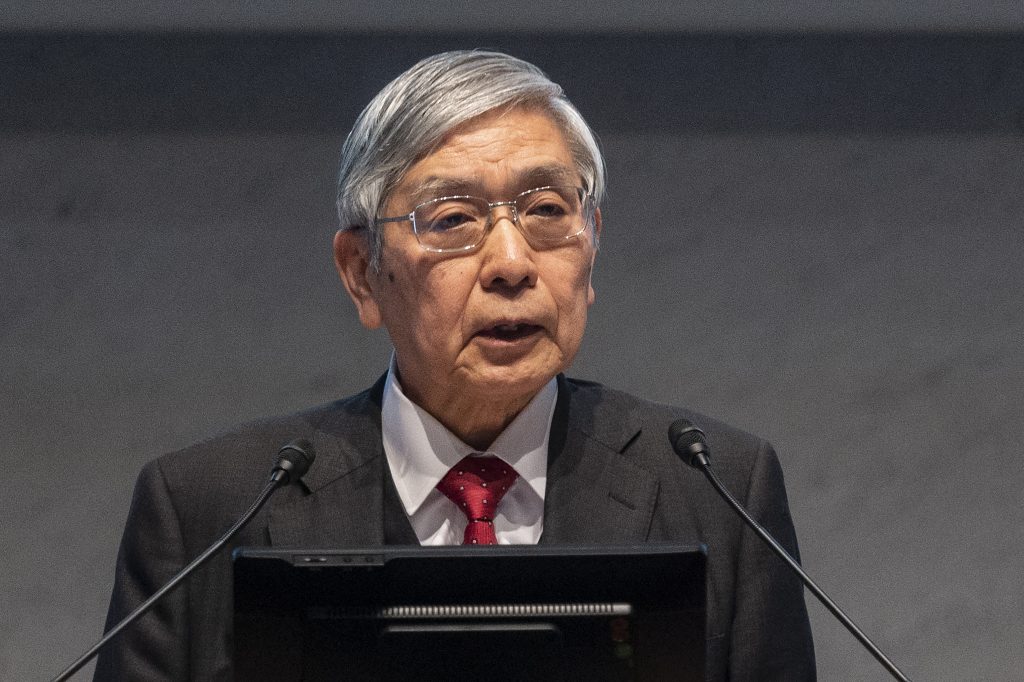
- ARAB NEWS
- 03 May 2024

The Bank of Japan (BOJ) maintained ultra-low interest rates on Friday and held off making changes to its controversial bond yield control policy, leaving options open ahead of a leadership transition in April.
Though widely expected by most analysts, the decision sent the yen and local bond yields tumbling as some investors unwound bets retiring central bank governor Haruhiko Kuroda would tweak the yield curve control (YCC) at his last policy meeting.
Following are excerpts from Kuroda’s comments at his post-meeting news conference, which was conducted in Japanese, as translated by Reuters:
Wages And Inflation
“We’re seeing changes in the views expressed by companies and unions ahead of the shunto wage negotiations. We hope this will lead to a positive change that pulls Japan out from a long-held perception that wages and inflation won’t rise.”
“It may take time but it’s still possible for Japan to stably and sustainably achieve the BOJ’s 2% target.”
“We’re seeing signs of change in Japan’s long-held perception that wages and prices won’t rise much. That’s seen in rising inflation expectations. Japan may be moving closer to what the BOJ had strived to achieve, which is to hit 2% inflation backed by wage growth. But there’s still various uncertainties surrounding the economy. As such, it’s important to maintain massive stimulus for the time being to support corporate efforts to raise wages.”
Side Effects Of Monetary Easing
“The BOJ has been taking various steps to mitigate the side effects of its monetary easing. I can say that the benefits of our monetary easing have far exceeded the demerits.”
Exit From Ultra-Loose Policy
“It’s premature to debate an exit from ultra-loose policy. How to combine changes in interest rates and the central bank’s balance sheet, and in what order, would depend on economic and price developments at the time.”
“We expect inflation to slow below our target towards the latter half of fiscal 2023, then pick up again. As such, it’s too early to decide whether the BOJ can exit easy policy at this stage.”
Wage Negotiations
“The outcome of wage negotiations, including how much base pay will rise, is critical for Japan to achieve a positive wage-inflation cycle. But we’re not looking at a single piece of data, but rather the mechanism at which the economy and prices move, in determining the outlook.”
On Market Distortion
“Since our January meeting, the shape of the yield curve has become relatively smooth. But we haven’t yet seen the distortion being fixed completely. We are still seeing some deterioration in market functions.”
“Markets have long been accustomed to YCC being operated with a band 25 basis points up and down each around the 10-year yield target. So, it will take some time for market pricing to stabilise under our new guidance. We expect market function to gradually improve by conducting flexible market operations, using various tools.”
On Whether Monetary Policy Has Changed When Kuroda First Started Out As Governor, And Now
“The BOJ has consistently conducted QQE in the past decade. The technical aspects may have changed, such as increasing asset buying or diversifying the type of tools. But we haven’t changed QQE in achieving massive monetary easing.”
“What has changed, though, is that in the last three years the BOJ deployed massive liquidity through market operations to deal with the COVID-19 pandemic. This was a huge success and came on top of our QQE.”
Reuters